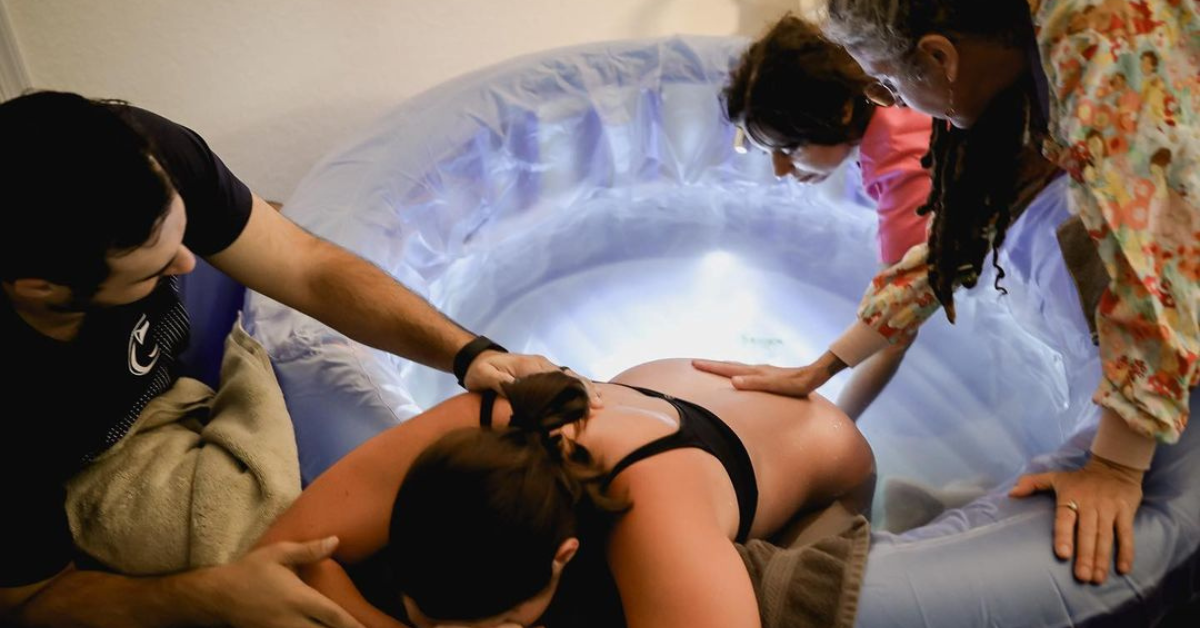When you think of a midwife, you’re probably thinking of a “baby-catcher” — someone whose whole job revolves around moms, children, and childbirth. But here’s a little-known fact a midwife has more to offer than you think. Midwives don’t only deliver newborns. In reality, many midwives, notably certified nurse-midwives (CNMs), provide complete gynecological care that extends far beyond pregnancy and delivery. Midwives may provide a variety of reproductive and gynecological healthcare treatments, such as yearly well-woman visits, contraception (including IUD placement), fertility guidance, lab tests, and more – anything that does not require an incision. A little more than 8% of births in the United States are handled by nurse-midwives, with a tiny minority attended by trained professional midwives (CPMs)
Types of Midwives:
Certified nurse midwives, often known as nurse midwives, have finished nursing school as well as a graduate degree in midwifery. They are qualified to work in many types of birthing environments, including hospitals, homes, and birth centers. They can prescribe prescriptions and also provide various types of primary and reproductive care.
Certified midwives have the same graduate-level training and skills as certified nurse midwives, but they have a specialization in a health discipline other than nursing. They take the same exam as nurse-midwives through the American College of Nurse-Midwives.
Certified professional midwives operate only in non-hospital settings such as homes and birth centers. These midwives have successfully finished training, an apprenticeship, and a national certification exam.
Traditional/unlicensed midwives have opted not to pursue midwifery licensing in the United States, but they continue to serve birthing families in their homes. Their education and background vary. Traditional/unlicensed midwives frequently serve specialized cultures, such as indigenous tribes or religious groups such as the Amish.
Benefits of Midwives
Midwives are the primary providers of care for pregnancy and delivery in countries such as the United Kingdom and the Netherlands, accompanying more than two-thirds of births. Midwifery treatment is safe — some argue safer than medical care — for low-risk women and families. A 2018 study review stated those who have midwives in hospital settings are less likely to have cesarean births, often known as C-sections or episiotomies.
Other studies discovered that women who give birth with nurse-midwives are far more likely to breastfeed and are less likely to develop a perineal laceration during birth. Another study on mapping midwife integration across the united states shows states with greater integration, such as Washington, had better health outcomes for both moms and newborns. This resulted in more births without the need for medication, fewer obstetric interventions, and fewer unfavorable neonatal outcomes when compared to states with weaker integration, such as Alabama and Mississippi.
Challenges Midwives Face
Even for those who desire it, midwifery care is sometimes difficult to obtain. In other countries and regions, midwives are not as easily accessible or acknowledged as part of the maternal culture. In Alabama, for example, there are now less than 50 CNMs certified to practice. CNM/CM clinical practice challenges and restrictions often fall into two categories: those caused by strict state laws and regulations, and those that, while having a regulatory component, can be regarded as connected to the business of midwifery.
The legal authorization afforded to CNM/CMs to practice independently varies greatly from state to state. According to ACNM statistics on State Legislation and Regulatory Guidance (ACNM, n.d.), non-nurse-midwives are prohibited in ten states, 12 states have no rules or regulations regarding non-nurse-midwives, and two states prevent CNMs from performing home deliveries.
Many jurisdictions face three key regulatory challenges:
- The need for physician supervision or a signed collaboration agreement with a physician
- Physician supervision of prescription jurisdiction even where otherwise free practice exists
- Regulations controlling midwives and out-of-hospital births.
Accessing Midwife Service Issues
Based on the prior information shared this can create challenges for midwives to perform their duties. In addition for patients to understand then choose midwives as providers. Restrictions can be much higher for people who want to use midwives outside of the doctor’s office. Some insurance plans, including Medicaid, may not cover non-hospital birthing choices, such as birth centers. Many families cannot afford these out-of-pocket expenses.
Midwives frequently consult with obstetricians, perinatologists, and other healthcare providers, and if issues emerge, they will refer women to the proper health personnel. If a woman is pregnant at high risk, we suggested that she choose a hospital environment. This will provide easier access to the care professionals we mentioned earlier to manage complications affecting either the mother or the baby.
The Future Of Midwife Services
Midwives teach fertility, diet, exercise, contraception, pregnancy health, breastfeeding, and great baby care. The American College of Nurse-Midwives lists the following advantages of obtaining midwifery care:
- Reduced likelihood of requiring a cesarean section
- Reduced labor inducement and augmenting rates
- Less regional anesthetic
- Lower neonatal mortality rates
- Reduced chance of premature birth
- Reduced Perineal injuries
- Lower expenses for both clients and insurance
- Improved likelihood of a successful breastfeeding
- Improved satisfaction with the quality of care
Still, there is a long way to go before midwives are completely incorporated into the American healthcare system.
Midwife Services Near Me
Midwifery services are suitable for both those who have not yet given birth and those who do not intend to conceive at all. If you want to see a midwife, look into the possibilities in your region. Some midwives may operate in hospital settings alongside doctors, while others will provide care from birth centers or private offices. Although midwifery care is frequently acceptable for individuals seeking an alternative or holistic outlook, it is not restricted to those who prefer that worldview.
Visit the lovely midwives of Midwife360. Their practice was created by their passion for traditional care methods and combining them with modern medicine. Together they provide a practice based on a deep connection between provider and patient, individual needs, and true healing.





